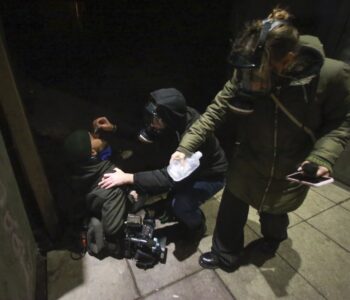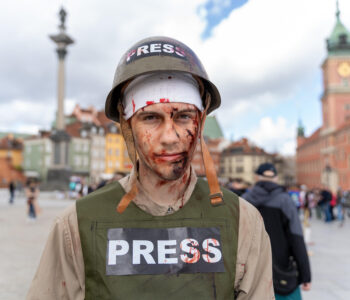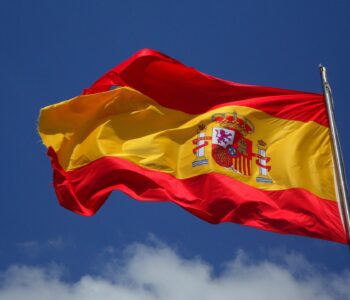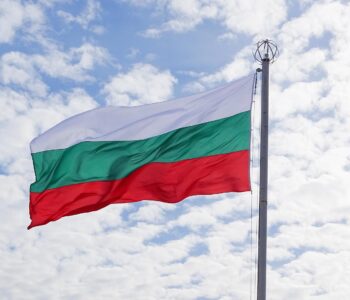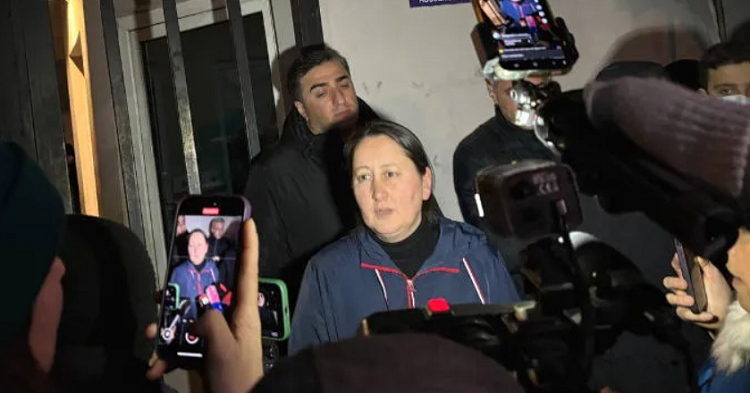 Library
Library
Georgia: Press freedom partners call for release of Mzia…
Press freedom partners call for release of Mzia Amaglobeli, end to crackdown on free press
The undersigned press freedom, journalists and human rights organisations call for the immediate release of veteran Georgian journalist and founder and director of the online newspapers Batumelebi and Netgazeti.
The undersigned press freedom, journalists and human rights organisations call for the immediate release of veteran Georgian journalist and founder and director of the online newspapers Batumelebi and Netgazeti.
Amaglobeli, who announced on January 20 to have been on hunger strike since January 12 after being abused while held in detention said “The charges against me today are the product of repressive, treacherous, and violent processes targeting humanity, freedom of speech, and expression.”
She faces charges of assaulting a police officer—carrying a sentence of up to seven years in prison—following an altercation with Batumi Police Chief Irakli Dgebuadze.
Amaglobeli was first arrested on January 11 for an administrative offense after placing a sticker about an upcoming general strike on the wall at the entrance of a police station. She was released the following day and, while speaking with her supporters outside the police station, police began arresting several of them. This led to an altercation between Amaglobeli and Dgebuadze, during which Amaglobeli is accused of slapping Dgebuadze. She was then charged under Article 353(1) of the Georgian Criminal Code (“Assault on a police officer, a special penitentiary service employee, or another public official or institution”), a serious offense that can carry a punishment of 4 to 7 years in prison. On January 14, Amaglobeli was ordered to remain in pre-trial detention.
On January 15 Nona Kurdovanidze, Chairperson of the Georgian Young Lawyers’ Association—a respected Tbilisi-based human rights watchdog, stated that Dgebuadze spat in Amaglobeli’s face and denied her access to water and toilet facilities for an extended period. Two days later, Gyla revealed that the Special Investigation Service (SIS), a body responsible for investigating crimes committed by officials, had been aware of the ill-treatment allegations while Amaglobeli was held in custody. Kurdovanidze noted that the SIS received detailed information directly from the alleged victim.
On January 20, Amaglobeli announced a hunger strike. In a letter published by Netgazeti, she wrote: “ These processes have been unfolding over the past year and are embedding themselves into our daily lives as a dictatorship. I refuse to accept the regime’s agenda […]. Freedom is far more valuable than life, and it is at stake. Fight before it is too late.”
According to Transparency International Georgia, video footage of the incident shows that the slap lacked sufficient force to cause harm,” and therefore does not meet the threshold of seriousness required for charges under the criminal code.
Prior to Amaglobeli’s arrest, the editor-in-chief of Batumelebi, Eter Turadze, was harassed by Dgebuadze. Batumelebi has repeatedly reported on and exposed alleged human rights violations under Dgebuadze.
In a separate case, the Batumi City Court sentenced Guram Murvanidze, a camera operator and photographer with Batumelebi, to eight days of administrative detention. Murvanidze was detained by police on January 12 while covering a protest. The prosecution accused him of disobeying a lawful order from law enforcement officers.
We urge the Georgian authorities to immediately and unconditionally release Amaglobeli and put an end to this unprecedented crackdown on the media. We furthermore demand a thorough investigation into the mistreatment she endured.
This statement was coordinated by the Media Freedom Rapid Response (MFRR), a Europe-wide mechanism which tracks, monitors and responds to violations of press and media freedom in EU Member States, Candidate Countries and Ukraine.



